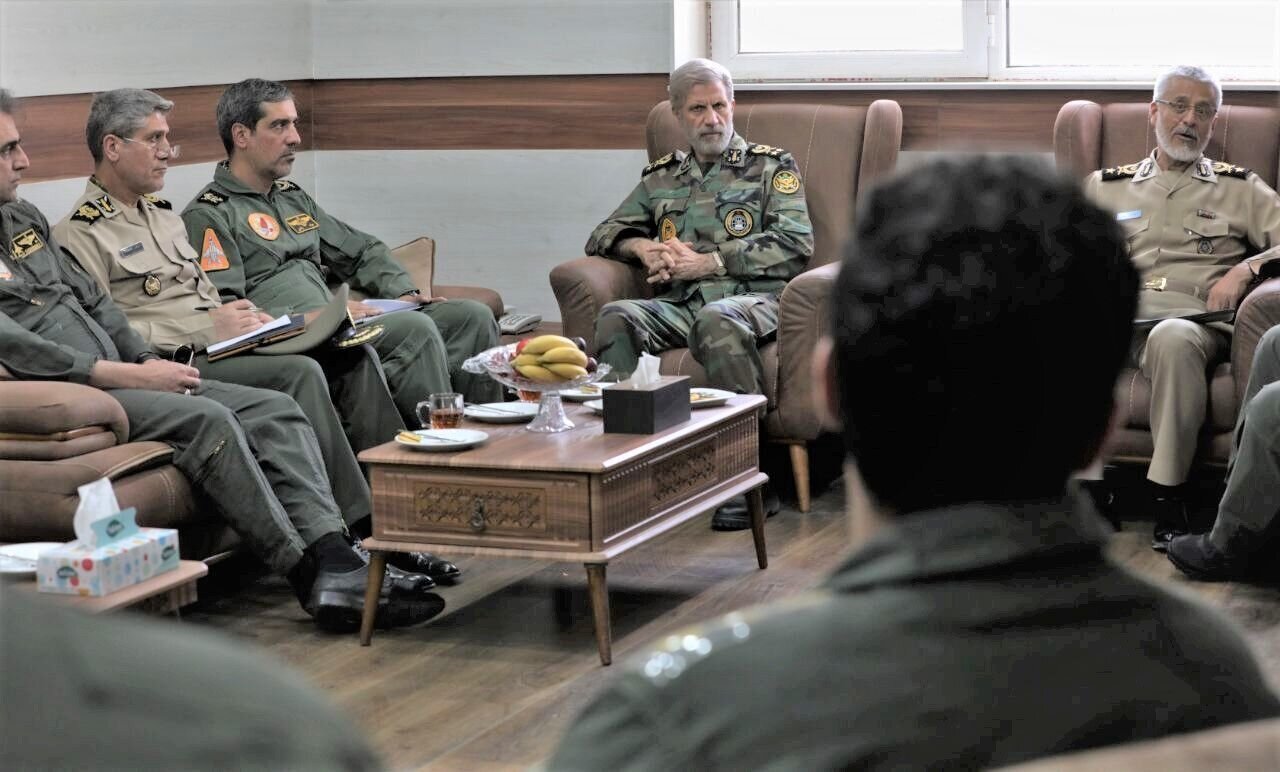Iran’s Army Chief surveys units, stresses steadfast defense

TEHRAN – Major General Amir Hatami, Commander-in-Chief of Iran’s Army (Artesh), conducted an unannounced visit on Friday to Shahid Lashgari Airbase (First Tactical Air Base) in Tehran, accompanied by Rear Admiral Habibollah Sayyari, Deputy Coordinator of the Army, and Brigadier General Hamid Vahedi, Commander of the Islamic Republic of Iran Air Force (IRIAF).
The high-level delegation toured key operational units, with General Hatami personally evaluating the combat capabilities of one of Iran’s most important Air Force bases.
General Hatami, recently appointed to his role by the Leader of the Islamic Revolution, Ayatollah Seyyed Ali Khamenei, was Iran’s defense minister from 2017 to 2021.
The Army Chief's Friday inspection included air defense batteries, mechanized brigades, and logistics hubs.
His recent appointment highlighted a directive from the Leader calling for "a transformative and revolutionary approach" to military readiness in the face of evolving regional threats.
During a meeting with the base’s fighter pilots, General Hatami delivered a potent message, asserting that "the Army must preserve the territorial integrity, independence, and system of the Islamic Republic of Iran."
He further elaborated that the very essence of defending Iran’s borders is intrinsically linked to safeguarding the "sacred system" of the Islamic Republic, which he affirmed "has kept our nation whole."
In an homage to the valor displayed during the Iran-Iraq war in the 1980s, the Army Chief warned, "We demonstrated then—and today no less so—that we will never allow a single inch of Iranian soil to be lost."
That same spirit of defiance would return to the battlefield when, decades later, the Army once again stood at the front lines against a new round of hostilities.
The Israeli regime’s campaign of aggression began on June 13 with a blatant and unprovoked assault, targeting senior Iranian military commanders, nuclear scientists, and civilian infrastructure across multiple cities, and resulting in the deaths of over 1,060 Iranians, predominantly civilians.
The strikes, which included coordinated air, missile, and drone attacks, were condemned by Tehran’s officials as a flagrant violation of international law and a calculated attempt to destabilize the Islamic Republic.
Iran’s Army stood at the forefront of the nation’s defense throughout the 12-Day War, engaging Israeli forces across multiple domains—including air defense, aerial combat, and strategic ground operations.
According to figures released by the Army, at least 56 Army personnel were martyred during the war, underscoring the Army’s central role in protecting Iran’s sovereignty and territorial integrity.
Major General Amir Hatami, Commander-in-Chief of the Army, later described the war as a “humiliating defeat” for the enemy, noting that “the enemy’s sinister intentions were neutralized by the blood and efforts of our martyrs.”
Leave a Comment